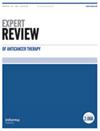免疫疗法联合化疗和抗血管生成治疗EGFR突变的NSCLC:挑战教条。
IF 2.9
3区 医学
Q2 ONCOLOGY
引用次数: 0
摘要
本文章由计算机程序翻译,如有差异,请以英文原文为准。
Immunotherapy with chemotherapy and anti-angiogenic therapy for EGFR mutated NSCLC: challenging the dogma.
Immunotherapy with immune checkpoint inhibitors has long been associated with lack of response and efficacy in metastatic EGFR mutated non-small cell lung cancer (NSCLC). A pivotal meta-analysis demonstrated no improvement in overall survival (OS) in randomized trials comparing anti-PD -1/L1 monotherapy with docetaxel [1]. Consequently, patients harboring EGFR mutations have been excluded from most immunotherapy trials. More recently, however, there have been trials of combination chemoimmunotherapy with antiangiogenic therapy that have allowed or been conducted in patients with EGFR mutations (Table 1). The synergistic action of chemoimmunotherapy with anti-angiogenic therapy may be of particular importance, supported by a growing body of clinical and pre-clinical evidence [2]. Anti-angiogenic therapy may have immunomodulatory activity, reprogramming the tumor microenvironment (TME) from immunosuppressive to immune permissive [3].
求助全文
通过发布文献求助,成功后即可免费获取论文全文。
去求助
来源期刊
CiteScore
5.10
自引率
3.00%
发文量
100
审稿时长
4-8 weeks
期刊介绍:
Expert Review of Anticancer Therapy (ISSN 1473-7140) provides expert appraisal and commentary on the major trends in cancer care and highlights the performance of new therapeutic and diagnostic approaches.
Coverage includes tumor management, novel medicines, anticancer agents and chemotherapy, biological therapy, cancer vaccines, therapeutic indications, biomarkers and diagnostics, and treatment guidelines. All articles are subject to rigorous peer-review, and the journal makes an essential contribution to decision-making in cancer care.
Comprehensive coverage in each review is complemented by the unique Expert Review format and includes the following sections:
Expert Opinion - a personal view of the data presented in the article, a discussion on the developments that are likely to be important in the future, and the avenues of research likely to become exciting as further studies yield more detailed results
Article Highlights – an executive summary of the author’s most critical points.

 求助内容:
求助内容: 应助结果提醒方式:
应助结果提醒方式:


